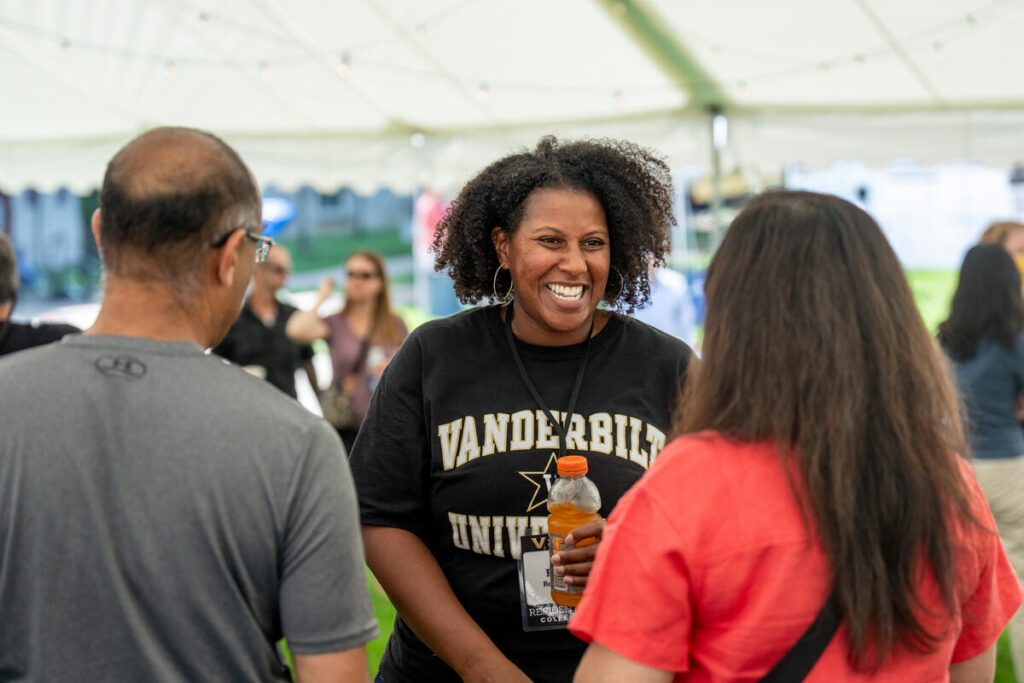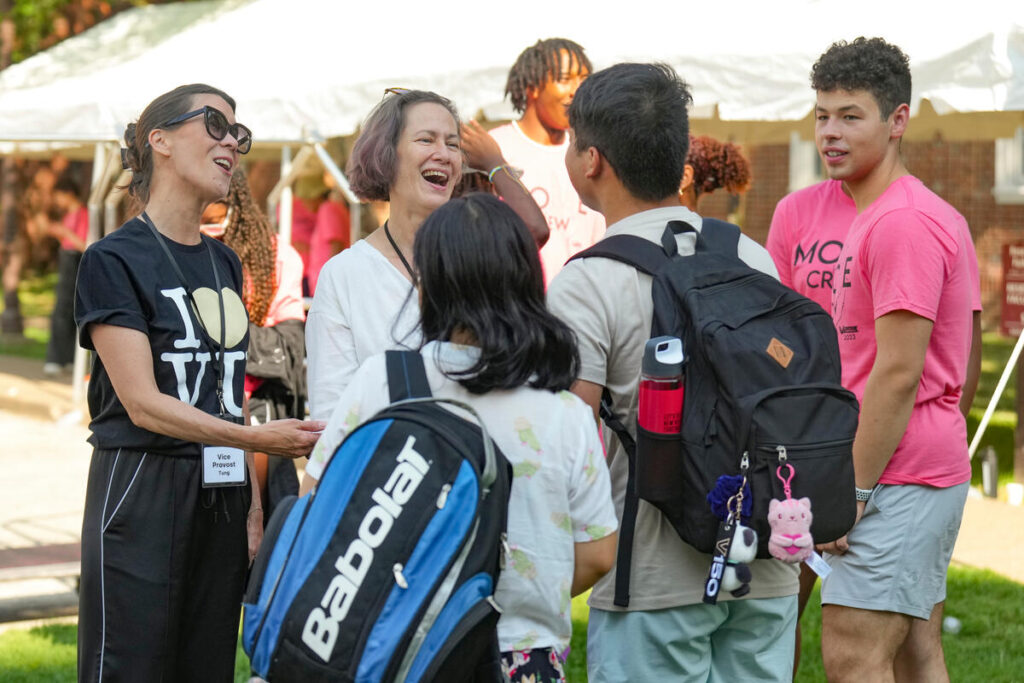Become A Faculty VUceptor
What is a faculty VUceptor?

A faculty VUceptor is the faculty half of the team that leads a section of Vanderbilt Visions. Vanderbilt Visions is the university’s core transition program for first-year students. Its purpose is to introduce new students to the university through weekly meetings with their peers. These sessions are led by a pair of facilitators, one student and one faculty or staff member. All first-year students will be assigned to one of 85 Visions groups. Starting during CommonVU Orientation, Visions encourages first-year students and their classmates to express their questions, ideas and opinions, and learn from and with each other. Vanderbilt Visions is neither a class nor purely a time for socialization, but is instead an intentionally crafted space for students and faculty to converse about key transitional issues in ways that are creative, engaging, and focus on mutual learning opportunities. It is totally different from any other kind of faculty-student time that exists on campus.
Application Process

Applications for 2025 are now closed. Applications open annually in January and will be linked at the top of this page. The priority deadline for applications is typically in late-February.
ELIGIBILITY
All Vanderbilt faculty and staff who hold a faculty appointment are eligible. Over the past ten years, some 300 faculty members of all ranks, representing the four undergraduate schools and colleges as well as the professional schools, have become VUceptors. Over one hundred faculty members have been VUceptors three or more times. Staff members who do not hold faculty appointments but do hold terminal degrees will be evaluated on a case-by-case basis for eligibility.
TIME COMMITMENTS FOR FACULTY VUCEPTORS
Successful faculty VUceptors usually commit at least 35-40 hours of their time over the course of the program. This includes regular meetings with your student VUceptor partner, weekly Vanderbilt Visions sessions (50-minutes each week), VUceptor Training, and CommonVU Orientation meetings. Additionally, faculty VUceptors are asked to hold small group or individual meetings with their first-year students. For 2025, time commitments may include:
Spring 2025
- Vanderbilt Visions Spring Training: Joint attendance with student VUceptor parter on ONE of the following evenings: March 25, 26, or 27, 2025 (tentatively 4:00-8:00 pm)
- Connect with your partner once or twice informally to get to know one another and complete scheduling documents (1-2 hours)
August 2025, before classes begin (all dates are tentative)
- Complete several online training and informational modules
- Joint VUceptor Training: August 14, 8:30 am – 5:30 pm
- CommonVU Orientation Week: August 17-19, up to 9 hours (specific time commitments will be released later in the semester/over the summer)
Fall 2025
- Weekly planning meeting with your student partner (at least 30 min per week)
- Weekly Visions group meeting followed by short debrief with your partner (60 min per week)
- Small group or individual meetings with your first-year students; please try to meet with all of your assigned students outside of the regular Visions meetings at least once (approximately 1 hour per week)
For their efforts, faculty VUceptors receive $2,500 in the form of a one-time salary supplement.
EXPECTATIONS FOR FACULTY VUCEPTORS
- Attendance. We expect that faculty VUceptors will attend all required sessions, lectures, and meetings of their Visions groups. If you must miss a session for any reason, please inform your student partner, providing as much advance notice as possible. Habitual or unexpected faculty absence can create an undue burden on the student partner.
- Presence. We expect that faculty VUceptors will be fully present with their partners and group members. We are demonstrating for our students what full attention looks like, by putting away cell phones, for example, as well as setting an example and an expectation for their behavior.
- Engagement. We expect faculty VUceptors to be engaged with the material and/or the discussion. Engagement requires preparation, but not necessarily expertise. As a VUceptor, your engagement may be far more valuable to your students than your expertise, as there will be ideas and information that you and your group are learning together.
- Respect. We expect that faculty VUceptors demonstrate respect for other members of their groups and the VUcept and Visions community as a whole. This respect for others includes, but is not limited to inviting and listening to different points of view and beliefs. We will also respect and observe community norms and university policies regarding student privacy and mandatory reporting.
- Accountability. We expect that faculty VUceptors hold themselves, their student partners, and the students in their Visions groups accountable for all of the above norms.
- Leadership. Even though you and your student VUceptor are a team, faculty still set the tone for what is expected, what is reasonable, and where the boundaries lie.
With questions about becoming a faculty VUceptor, contact Director of the First-Year Experience Natalee Erb.


You must be logged in to post a comment.